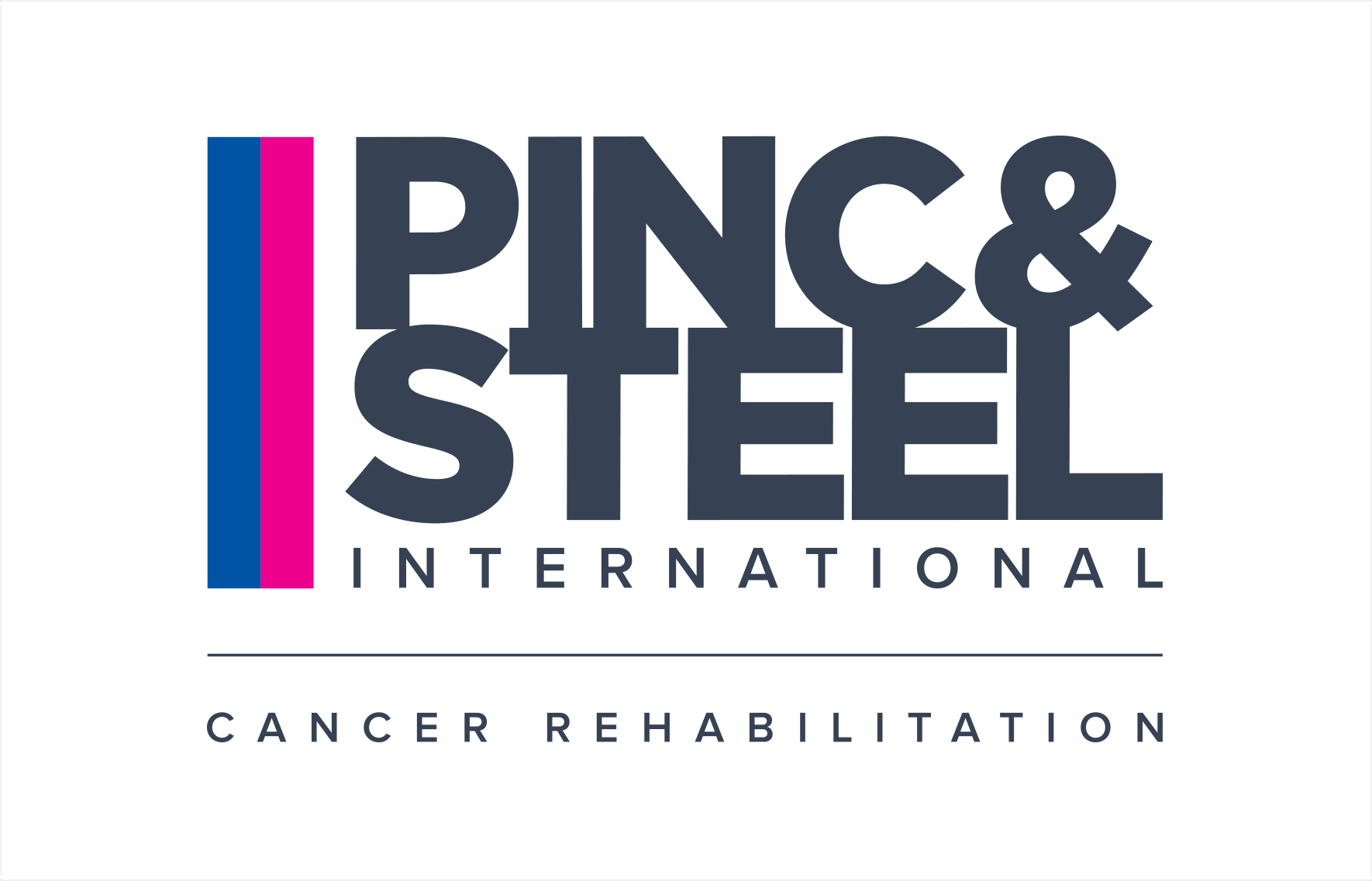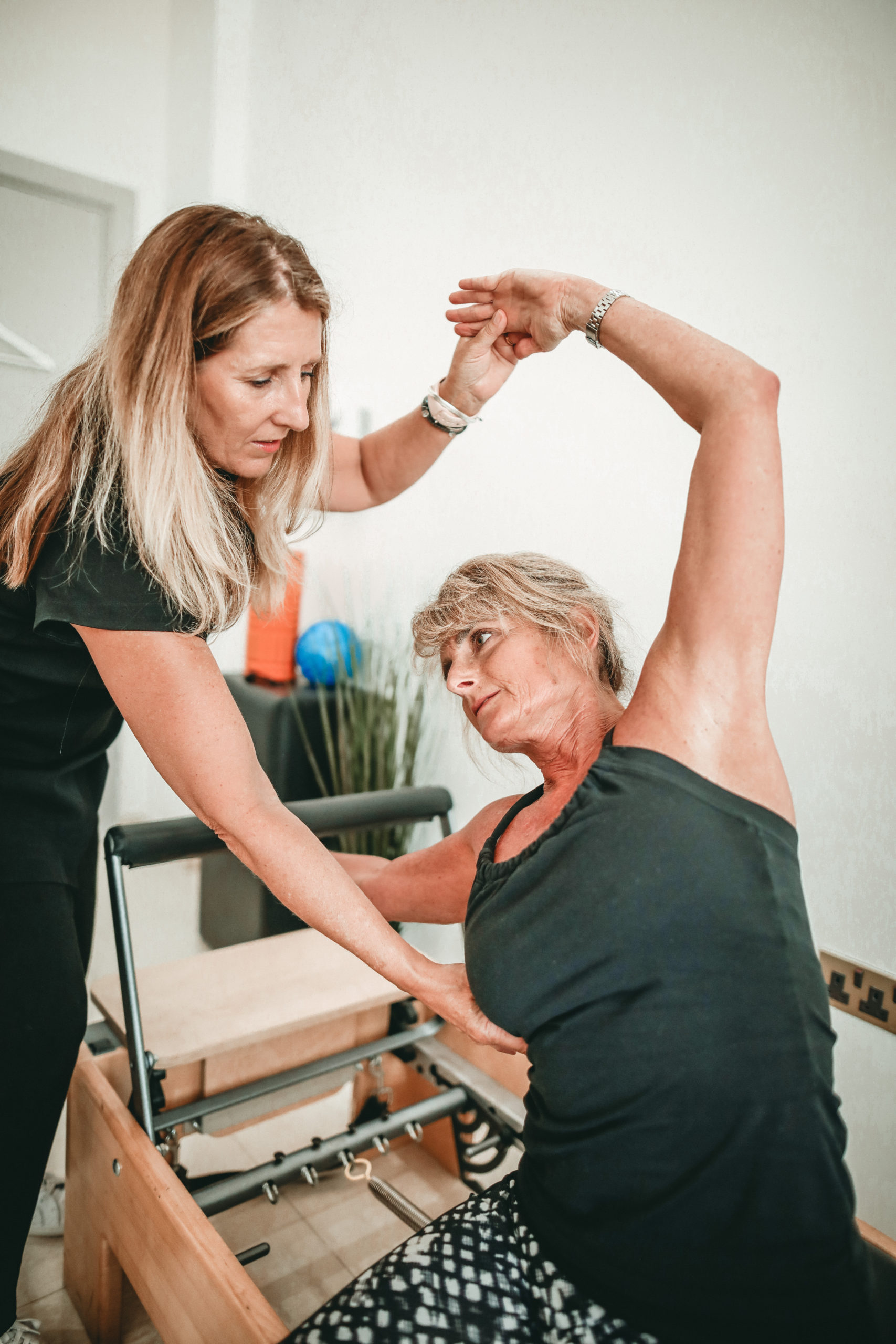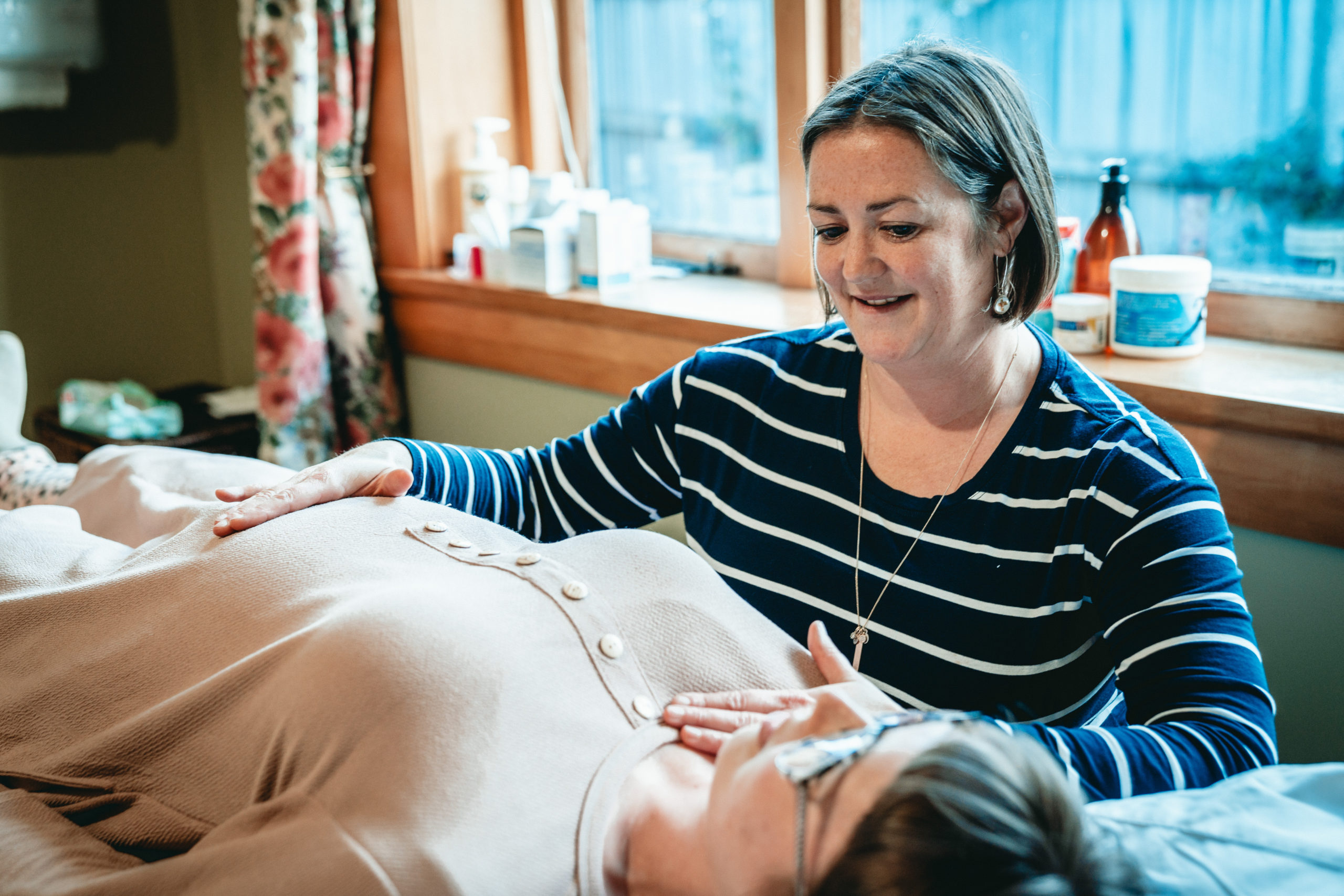Cancer Rehabilitation
PINC cancer rehabilitation is a service that we offer to any woman diagnosed with cancer.
Our main goal is to guide women through their cancer journey – to reduce the harsh side effects of treatment, and to improve quality of life and health outcomes. With improved cancer treatments in recent years, more and more women are surviving a cancer diagnosis, however they can experience health problems from the side effects of treatment and are at risk of premature mortality.
There is now a strong body of evidence that shows that cancer rehabilitation and individualized exercise programs can improve the outcomes of woman with cancer. Through education, hands-on treatments and other strategies, we can empower women and give them confidence and support to get through this difficult time.
As physiotherapists with specialized training in cancer rehabilitation, we have the skills required to implement the most appropriate and safest plan for each individual. Treatment can commence at any stage of the cancer journey – whether it be just following diagnosis, during the treatment phase (chemotherapy, radiation therapy etc), or at any point following the treatment phase.

When is it best to start cancer rehabilitation?
Ideally, we would like to start women on their cancer rehabilitation journey as soon as possible. Being diagnosed with cancer is an extremely stressful thing to go through, and we recognize that there are many medical appointments around this time to determine the best course of treatment. If you can also see a physiotherapist in this time, we can help to prepare you for the path ahead by implementing a plan and educating you about the things you can do to optimize your health and wellbeing during and following cancer treatments.
However, if you are not made aware of this service until after your cancer treatment has finished, that is absolutely fine and you can commence cancer rehabilitation at this time too. At this stage, many women are unsure about what they can and can’t do, and we can guide you in returning to the activities you enjoy as soon as possible. We do this through a variety of strategies including education/advice, hands-on treatment and the implementation of a safe exercise program.
What will happen during my cancer rehabilitation sessions?
Our main focus will be on what is important to you at the time of your initial session. This will differ for every patient depending on the stage of the cancer journey they are at. Here are some examples of some of the concerns that our patients present with:
- Fear of the unknown health implications/side effects of cancer treatments/concern about being unable to get back to usual activities such as caring for dependent children, returning to work.
- Fatigue, breathlessness and loss of general physical fitness/condition following cancer treatments.
- Pain, weakness and reduced mobility post-surgery.
- Decreased ability to perform usual functional tasks.
- Uncertainty/fear regarding what movements/activities are harmful, and which are safe to participate in.
- Concerns about body image, intimacy with partner, low self-esteem and disconnect between mind and body.
- Bowel and/or bladder difficulties.
Depending on your main focus and goals, treatment during your session could include the following:
- Education and guidance around what movements and activities are safe to do, and what will give you the best long-term outcomes.
- Specific hands-on physiotherapy treatments such as soft tissue mobilization, joint mobilization.
- Scar management.
- Resistance and Pilates exercises.
- Pain management strategies.
- Development of an individualized exercise program.
- Fatigue management strategies.


How much does treatment cost? How many sessions will I need?
If you have funding from PINC&STEEL Foundation, there is no charge for your initial 4 sessions. If you have not received funding, the cost of the initial session will be $136 (one hour session), and follow up appointments will be $71 (30–40-minute sessions). Your insurance company may also be able to cover the cost of treatments. There is more information on how to apply for funding at https://www.pincandsteel.com/apply-for-funding/
The number of sessions required will be different for each patient. We would recommend four sessions initially, and then reassess following these to determine the need for more.
What if I have a terminal cancer diagnosis – can cancer rehabilitation still help me?
Yes – there is research to support exercise therapy for improving quality of life in patients with terminal cancer or in palliative care. With patients with bony metastases, we can design a safe exercise program that can enable you to maintain as much physical conditioning as possible at this stage.
Should I bring anyone with me to my appointment?
That is entirely up to you. If you would like to bring a support person along, we would welcome them into the session.
What should I bring to my first appointment?
It is helpful if you can bring with you the following:
- Any medical notes, reports, letters regarding your diagnosis and treatments to date.
- A list of any medication you are on.
- Any imaging reports that you have (X-rays, scans etc).
- Comfortable clothing to wear for any assessments that we may need to perform.



PINC cancer rehabilitation is a service that we offer to any woman diagnosed with cancer.
Our main goal is to guide women through their cancer journey – to reduce the harsh side effects of treatment, and to improve quality of life and health outcomes. With improved cancer treatments in recent years, more and more women are surviving a cancer diagnosis, however they can experience health problems from the side effects of treatment and are at risk of premature mortality.
There is now a strong body of evidence that shows that cancer rehabilitation and individualized exercise programs can improve the outcomes of woman with cancer. Through education, hands-on treatments and other strategies, we can empower women and give them confidence and support to get through this difficult time.
As physiotherapists with specialized training in cancer rehabilitation, we have the skills required to implement the most appropriate and safest plan for each individual. Treatment can commence at any stage of the cancer journey – whether it be just following diagnosis, during the treatment phase (chemotherapy, radiation therapy etc), or at any point following the treatment phase.



When is it best to start cancer rehabilitation?
Ideally, we would like to start women on their cancer rehabilitation journey as soon as possible. Being diagnosed with cancer is an extremely stressful thing to go through, and we recognize that there are many medical appointments around this time to determine the best course of treatment. If you can also see a physiotherapist in this time, we can help to prepare you for the path ahead by implementing a plan and educating you about the things you can do to optimize your health and wellbeing during and following cancer treatments.
However, if you are not made aware of this service until after your cancer treatment has finished, that is absolutely fine and you can commence cancer rehabilitation at this time too. At this stage, many women are unsure about what they can and can’t do, and we can guide you in returning to the activities you enjoy as soon as possible. We do this through a variety of strategies including education/advice, hands-on treatment and the implementation of a safe exercise program.
What will happen during my cancer rehabilitation sessions?
Our main focus will be on what is important to you at the time of your initial session. This will differ for every patient depending on the stage of the cancer journey they are at. Here are some examples of some of the concerns that our patients present with:
- Fear of the unknown health implications/side effects of cancer treatments/concern about being unable to get back to usual activities such as caring for dependent children, returning to work.
- Fatigue, breathlessness and loss of general physical fitness/condition following cancer treatments.
- Pain, weakness and reduced mobility post-surgery.
- Decreased ability to perform usual functional tasks.
- Uncertainty/fear regarding what movements/activities are harmful, and which are safe to participate in.
- Concerns about body image, intimacy with partner, low self-esteem and disconnect between mind and body.
- Bowel and/or bladder difficulties.
Depending on your main focus and goals, treatment during your session could include the following:
- Education and guidance around what movements and activities are safe to do, and what will give you the best long-term outcomes.
- Specific hands-on physiotherapy treatments such as soft tissue mobilization, joint mobilization.
- Scar management.
- Resistance and Pilates exercises.
- Pain management strategies.
- Development of an individualized exercise program.
- Fatigue management strategies.



How much does treatment cost? How many sessions will I need?
If you have funding from PINC&STEEL Foundation, there is no charge for your initial 4 sessions. If you have not received funding, the cost of the initial session will be $136 (one hour session), and follow up appointments will be $71 (30–40-minute sessions). Your insurance company may also be able to cover the cost of treatments. There is more information on how to apply for funding at https://www.pincandsteel.com/apply-for-funding/
The number of sessions required will be different for each patient. We would recommend four sessions initially, and then reassess following these to determine the need for more.
What if I have a terminal cancer diagnosis – can cancer rehabilitation still help me?
Yes – there is research to support exercise therapy for improving quality of life in patients with terminal cancer or in palliative care. With patients with bony metastases, we can design a safe exercise program that can enable you to maintain as much physical conditioning as possible at this stage.
Should I bring anyone with me to my appointment?
That is entirely up to you. If you would like to bring a support person along, we would welcome them into the session.
What should I bring to my first appointment?
It is helpful if you can bring with you the following:
- Any medical notes, reports, letters regarding your diagnosis and treatments to date.
- A list of any medication you are on.
- Any imaging reports that you have (X-rays, scans etc).
- Comfortable clothing to wear for any assessments that we may need to perform.

